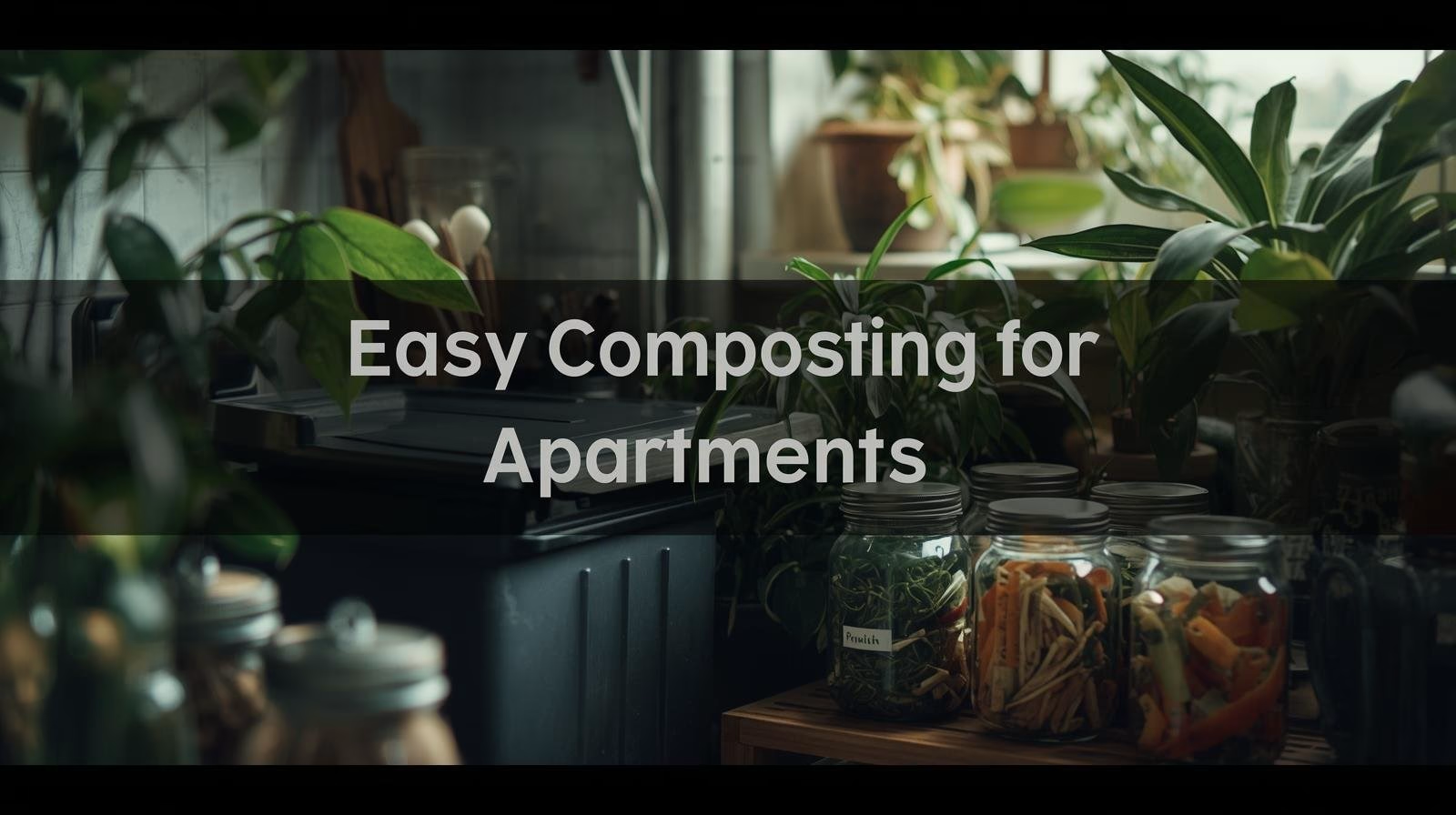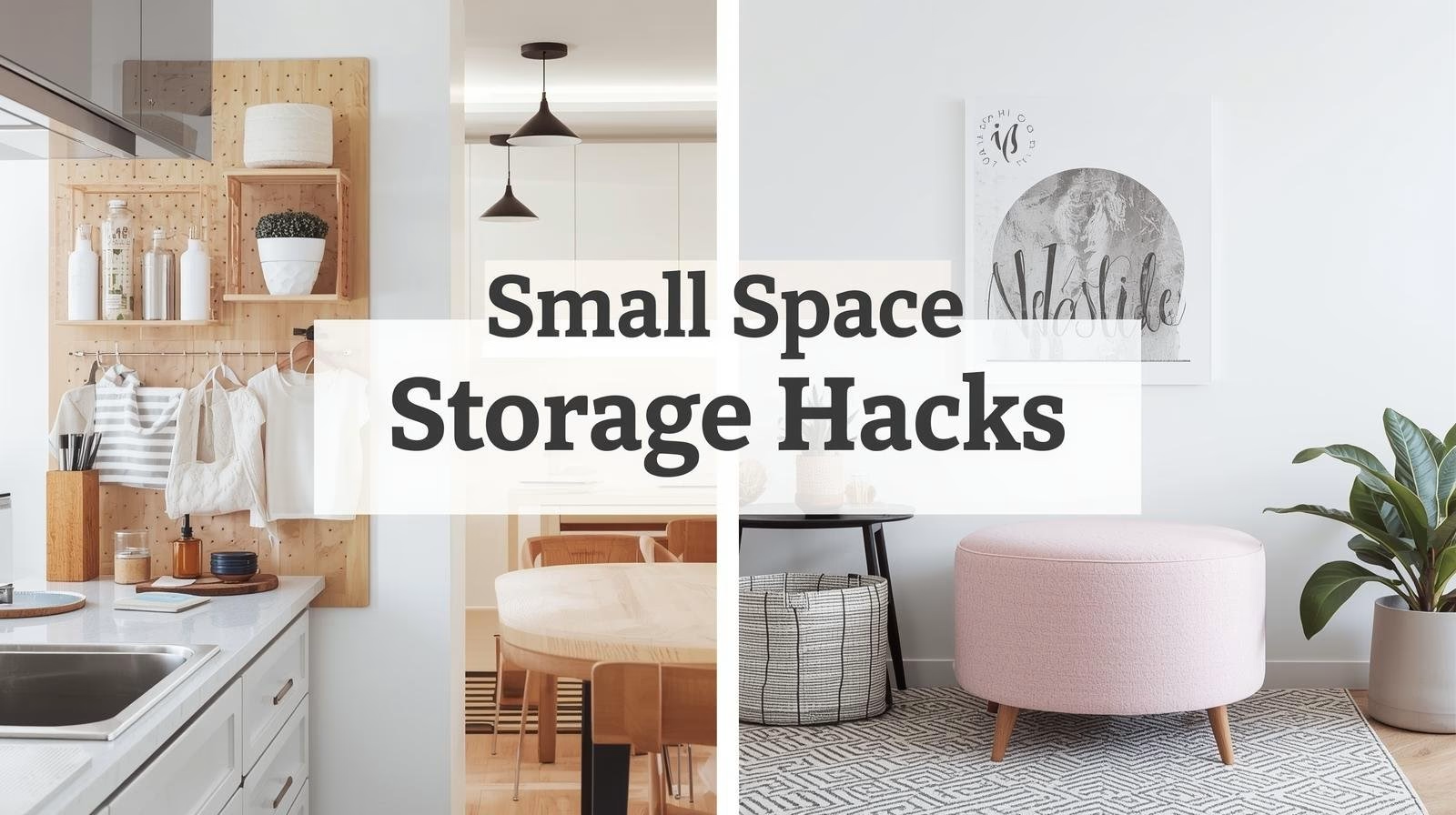Have you ever looked at your brimming garbage bin packed with banana peels, coffee grounds, and veggie scraps, and thought: "There must be a better way"? You're right. Composting isn't just for people with big backyards. Whether in a tiny flat and on a limited budget, you can turn your kitchen waste into gold for your plants.
The best part? Composting is easier (and cheaper) than you think. No fancy gadgets required. If you have the right tips, you can start composting today, whatever your space or budget may be.
Why Composting in Apartments Matters
Most of the food that is wasted within landfills takes place in home trash cans. Instead of decomposing naturally there, it forms methane, which is a greenhouse gas stronger than carbon dioxide.
By composting in your apartment, you.
- Cut down on household trash (fewer smelly garbage bags).
- Reduce greenhouse gas emissions.
- Save money by making free fertilizer for your houseplants.
- Feel good knowing you're part of the solution.
Getting Started Without Feeling Overwhelmed
There's no need to invest in an premium "smart composter" or high-tech gadget. In fact, a zero-waste mindset involves using what you already own.
Try using a simple container. An old bucket, Tupperware, or a lidded bin; it works even better. Poking or drilling holes for air and lining them with old newspaper can create a compost bin.
👉 You Might Also Like 15 Minute Decluttering Tasks That Make a Big Difference.
Types of Apartment-friendly Composting
1. Bokashi Composting
A method from Japan that uses beneficial microbes from a bran mixture.
- Works indoors, with no strong odors if done correctly.
- Great for meat, dairy foods, and cooked foods that most compost systems can't handle.
Tip: You can create your own Bokashi bins by using a bucket that has a spigot at the bottom to drain off the "Bokashi tea" that makes a great fertilizer for your plants.
2. Vermicomposting (worm Bins)
Uses red wiggler worms to break down scraps quickly.
- Small, odor-free if maintained properly.
- Produces "worm castings," a rich natural fertilizer.
Trick: Use shredded Paper for bedding to help worms stay happy and avoid using citrus, onion, and too much bread.
3. Countertop Compost Bins
Small containers can be sealed to collect scraps before being sent into a larger system or community drop-off.
- Affordable and beginner-friendly.
- Keep your scraps in a bag in the freezer until you're ready to compost them; no smells or pesky fruit flies.
4. Community Compost Programs
Many cities have compost drop-off sites or pickup services.
- Check local farmers' markets or community gardens.
👉 For reliable information, check out the EPA's guide to home composting.
Composting on a Budget
It's a myth that composting doesn't have to cost a penny.
You can use an empty bucket, a paint tin, or an old storage bin as a planter.
Here are things like shredded newspaper, toilet paper rolls, and junk mail.
You Can Use These Nitrogen "Greens": Coffee Grounds, Vegetable Peels, Tea Leaves.
Use a stick or a spoon to stir. You do not need to buy an expensive aerator.
👉 10-10-100 decluttering method
Avoiding Common Composting Problems
- Just add more Paper or cardboard. Avoid too much wet food.
- Fruit Flies: After you add a layer, the best thing to do is freeze the scraps or cover with broken-up, shredded Paper.
- Slow Breakdown: Chop scraps smaller. Mix often for aeration.
- If you have a Bokashi or DIY bucket system, drain the leachate regularly to prevent odors and maintain optimal conditions.
Imagine composting like a recipe that requires a good balance. Too wet? Add browns. Too dry? Add greens.
Hacks for Tiny Apartments
- Compost Bin Under Sink: Stash a small container in your cupboard.
- If you have a small balcony, then keep it outside.
- How about a Shared compost Station? You can divide the work.
- Alternate trays of food scraps and shredded Paper to minimize smell.
Building a Zero-waste Kitchen Routine
Pair composting with other small sustainable habits.
- Keep a "scrap bowl" on your counter while cooking.
- Do a quick fridge check once a week to prevent waste.
- Plan meals around "use it up" ingredients.
👉 5-Minute Daily Declutter hacks
❓ Faq: Apartment Composting
Does composting smell bad in apartments?
What am I supposed to do with finished compost when you live in an apartment?
Do worms escape vermicompost bins?
How do I prevent fruit flies?
What is an inexpensive means of composting indoors?
How about onion or citrus peels?
How can I tell when my compost is done?
Is it necessary for me to buy a compost starter?
Can I compost bread and pasta?
✨ Final Thoughts
Composting may seem difficult to do if you live in an apartment, but it isn't. A mix of scraps, creativity, and a little routine is the essence of doing it.
Remember: composting isn't about perfection. It's about taking one step closer to sustainability. All you need is a simple bin to start collecting your scraps, and before you know it, you will be making compost.
And the best part? You will be proud of making a difference in a small kitchen, will save money, and reduce trash.



